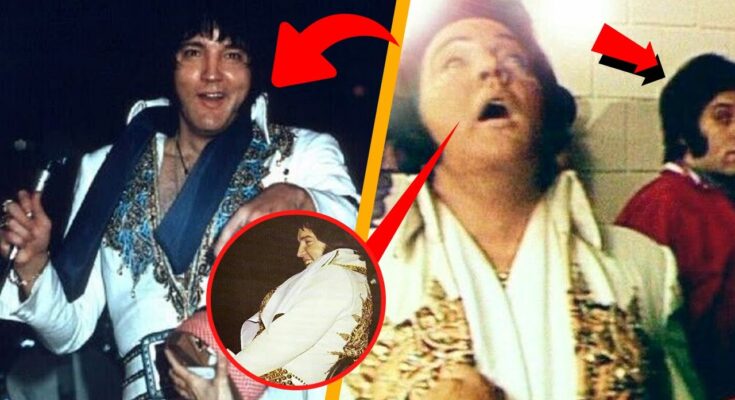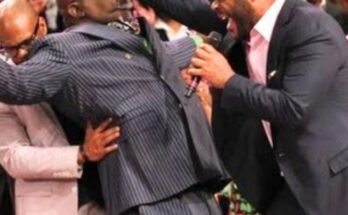In an intriguing look into the lesser-known facets of Elvis Presley’s life, his strange pre-show and post-show rituals during the 1970s come to light. Delving into these eccentric routines that defined his performances, fans are invited to uncover the extraordinary lengths Elvis went to maintain his legendary status.
Elvis’s day typically began in the late afternoon, around 3:00 or 4:00 PM, a stark contrast to the typical performer’s schedule. His first ritual was a strong cup of black coffee, a surprising choice given his refined palate. However, this caffeine boost was just the beginning. To suppress his appetite, Elvis often turned to appetite suppressants, occasionally including amphetamines for an added energy kick. His health regimen was extensive, involving decongestants and blood pressure medication to help support his stamina and well-being.
As the evening show drew closer, Elvis dedicated hours to relaxation and mental preparation. Before donning his iconic jumpsuit, he received a B12 shot—a popular energy booster in the 1970s—along with an antihistamine to clear his sinuses. This was crucial for someone with a phobia of congestion affecting his vocal performance. Additionally, Elvis contended with conjunctivitis due to the dye used on his eyelashes, which led him to use scarves to keep his face dry.
Perhaps the most curious part of his pre-show routine was a special voice shot created by a throat specialist. This unique concoction, believed to contain a blend of herbs and possibly steroids, was designed to coat his vocal cords, ensuring clarity and power as he hit the stage. These elaborate preparations highlighted the dedication Elvis had to delivering the stellar performances his fans adored.
During each electrifying show, Dr. Nick, Elvis’s personal physician, played a crucial role, meticulously monitoring his condition on stage. As Elvis wowed audiences with his high-energy performances, Dr. Nick observed every nuance of his body language and facial expressions, watching for any signs of distress. This vigilance was essential, as the physical demands of Elvis’s performances often put him at risk for injury, making Dr. Nick’s role not only one of medical oversight but also an in-depth understanding of the performer’s unique needs.
After the final encore, Dr. Nick’s responsibilities intensified. He would conduct a thorough assessment of Elvis’s condition, focusing on the physical toll the performance had taken. The high-energy shows often left Elvis drained and in pain. Dr. Nick would administer carefully calculated doses of Dilaudid, a powerful painkiller, mixed with B12 or saline to provide rapid relief and restore energy levels. This meticulous protocol was critical, especially with consecutive shows looming on the schedule.
Managing Elvis’s health was no small feat, complicated further by the fact that he sometimes obtained medications from multiple sources. Despite Dr. Nick’s best efforts to maintain a balanced regimen, Elvis’s fame and lifestyle often led him to take drugs that were unknown to his physician, creating a precarious situation with potentially harmful interactions. Dr. Nick navigated this minefield with caution, constantly adjusting treatment plans to address the complexities of Elvis’s medication intake while ensuring his performances remained top-notch without compromising his long-term health.
The challenges of managing Elvis’s health reflected the intricate balance needed to keep the King of Rock and Roll performing at his peak. Each performance was a testament to the dedication and behind-the-scenes efforts required to maintain his legendary status. Elvis Presley’s commitment to his craft, despite the physical toll it exacted, showcased an unparalleled dedication that set him apart in the annals of music history. As audiences reflect on these insights into his life, they gain a deeper appreciation for the extraordinary measures taken to keep the King on stage, captivating fans night after night.



